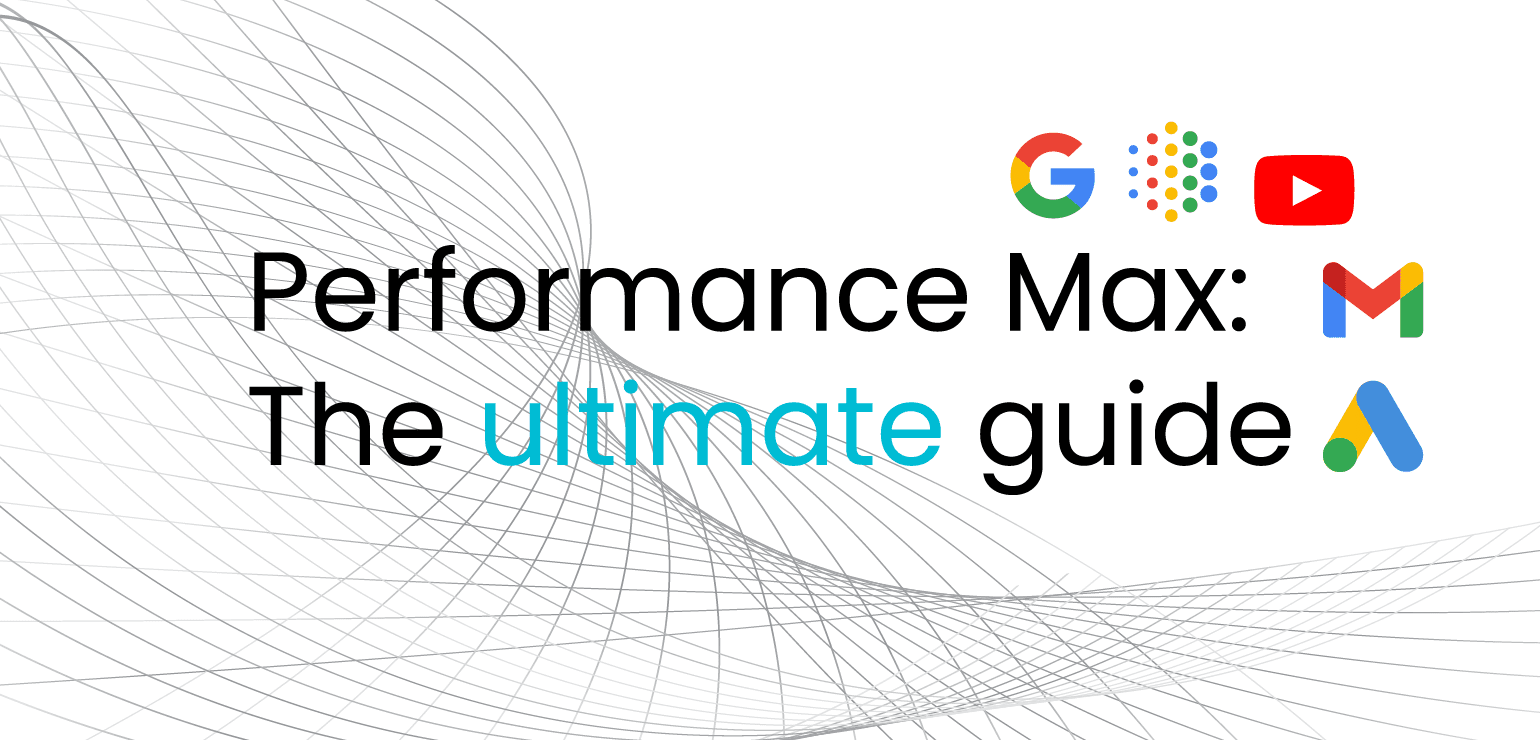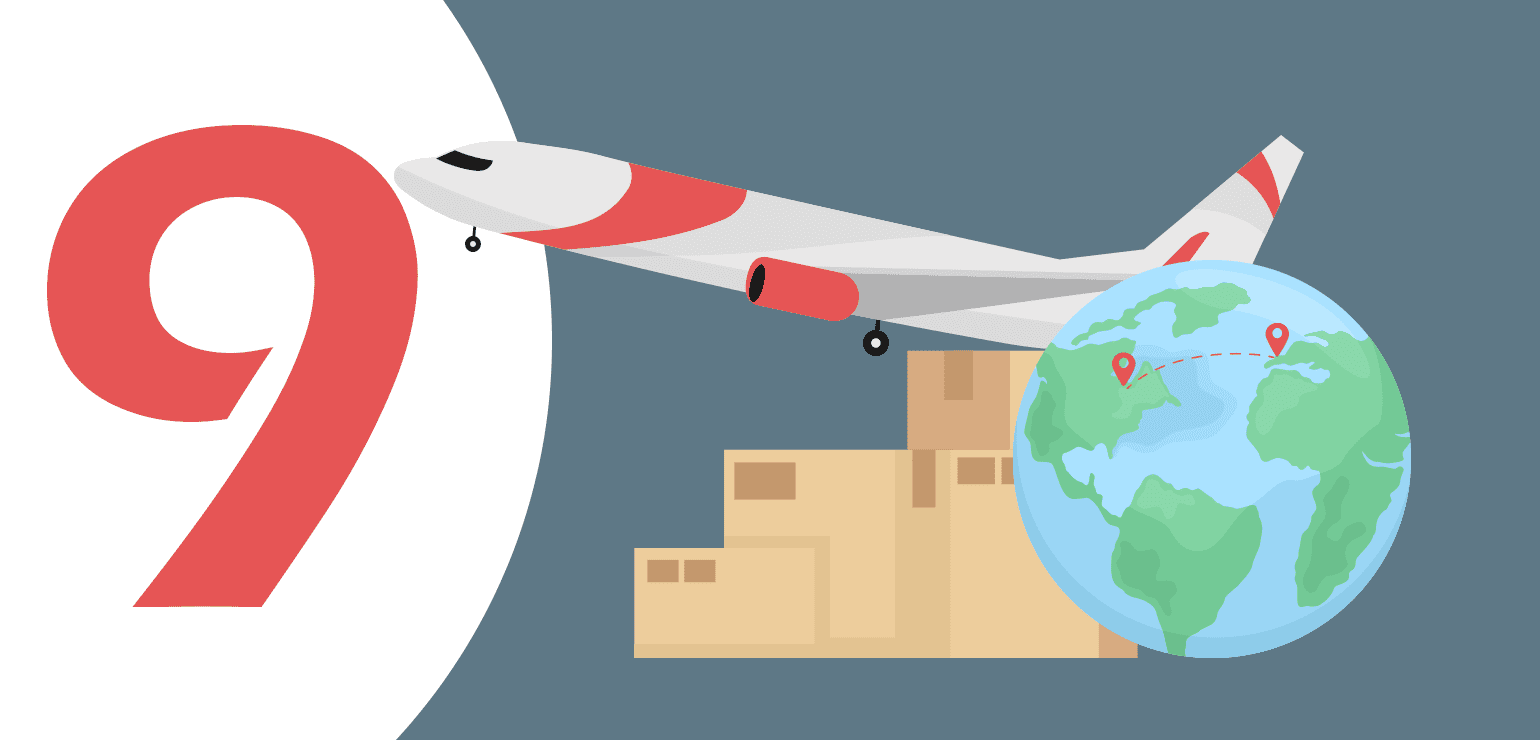SEO vs PPC: the ultimate showdown

Article topics
- What is SEO?
- What is PPC?
- The advantages of using SEO
- The disadvantages of using SEO
- The advantages of using PPC
- The disadvantages of using PPC
- Can you use SEO and PPC together?
- SEO or PPC: which one is right for you?
Two of the most prominent marketing channels are search engine optimisation (SEO) and pay-per-click (PPC) advertising. Both are great for getting your website in front of the right people, but they do this in vastly different ways.
The big question is… which do you use to get the right results?
So, in the red corner, we have the powerhouse that is SEO, known for its solid understanding of its competitors, tactical moves, and sheer stamina.
In the blue corner, we have the bold and speedy PPC, ready to charge into battle and make an immediate impact on your marketing.
But who wins? Let’s prepare for battle and find out!
What is SEO?
SEO is the process of optimising your website to make it more visible in the search engine results.
All businesses want to get on the first page of Google or Bing, ideally at the very top. This is because this ensures the most visibility and an increased chance of a potential customer clicking on a link.
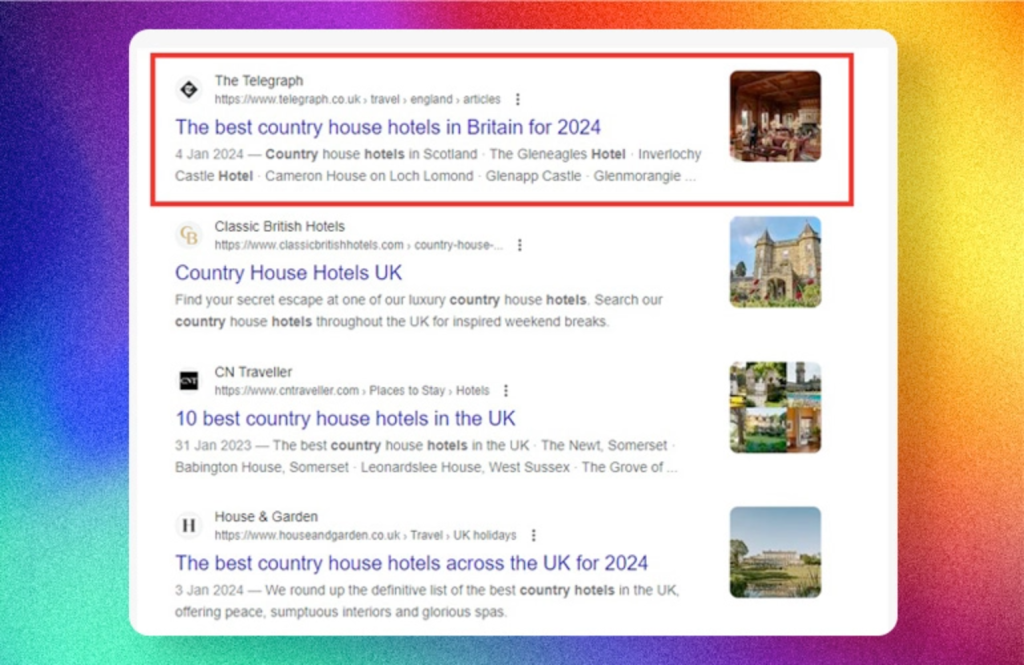
In fact, cinching the top organic result in Google (by organic, we mean the top result achieved through SEO rather than PPC) leads to a 40% click-through rate.
So, how can you use SEO to boost your search engine visibility? Many people think search engine optimisation is just about using the right keywords, but SEO encompasses a range of different processes. You can split the process into three broad categories:
- On-page SEO. This concerns everything you do on your website pages to increase your search ranking. For example, keyword research, content creation, internal linking, and page titles and meta descriptions
- Off-page SEO. This concerns everything you do off your website pages to increase your search ranking. For example, brand mentions, backlinks from other websites, and NAP citations
- Technical SEO. This concerns making changes ‘under the hood’ of your website so it’s easier for the search engines to crawl. For example, improving your page load speed, ensuring mobile responsiveness, and adding structured data markup
What is PPC?
PPC is a type of digital advertising where you pay to promote your business on a particular website or app.
It’s called PPC as you only pay when a prospective customer clicks on one of your ads.
You might also hear PPC referred to as search engine marketing.

One of the most common types of PPC ads you might see are the search ads on Google or Bing. These are the sponsored links that appear above the rest of the results when you search for a specific word or phrase.
Other examples of PPC advertising include:
- Shopping ads
- Display ads
- Retargeting ads (this is when you use PPC ads to target people who have already visited your website)
- YouTube video ads
- Adverts on social media platforms like Facebook, Instagram, LinkedIn, and TikTok
So, we’ve scoped out what PPC and SEO are, but how do they match up against each other? Let’s look at the pros and cons of using each channel.
The advantages of using SEO
It’s cost-effective
SEO is one of the most economical marketing channels available, making it a fantastic option for businesses on a budget.
Why is SEO cost-effective? You’re targeting people who are actively looking for your products and services. For example, if someone is searching Google for ‘buy football boots,’ there’s a high probability that they’re ready to make a purchase now, or very soon.
There are also a range of free and low-cost tools available. For example, you can use a tool like Ubersuggest, Mangools, or Semrush to find keywords to rank for, and the Yoast or Rank Math extensions on WordPress to optimise your pages.
It’s important to note that while SEO is cost-effective, you must commit the time to an SEO strategy. It takes a lot of effort and resources to move towards the first page of Google!
It builds trust in your business
Let’s imagine that you’re searching for a specific keyword in Google or Bing. You have the choice of clicking on a link on the first page, and a link on the sixth page. Which one do you go for?
Chances are that you’ll opt for the link on the first page.
Trust and credibility are essential to businesses – you want customers to see you as a reliable and credible option in a crowded marketplace. 58% of people have recommended a company they trust to friends and family.
For example, Google uses a system called E-E-A-T to help rank pages. This stands for ‘experience, expertise, authoritativeness, and trustworthiness.’ Essentially, the more trustworthy your page, the more likely you’ll rank highly.
It’s long-lasting
SEO efforts build upon themselves over time. As your website gains more authority and trust and your content gets more backlinks, your SEO improves.
As a result, you continue to rank even after you’ve finished optimising your content.
According to a study by Ahrefs, the average page that ranks in the top ten of the search results is over two years old.
Of course, it’s still essential to maintain your site. Changes to the search engine algorithm and new competitors can mean your pages go down in the rankings as well as up.
The disadvantages of using SEO
It takes time to implement
While SEO lasts a long time, it also takes time to work. Search engines like Google need to crawl and index your pages, and you need to wait for your pages to build authority and trust. For example, getting backlinks from relevant websites can often be a long and challenging process.
58% of SEO specialists advise that it takes between three and six months for SEO to work, with 12% advising that it can take over a year.
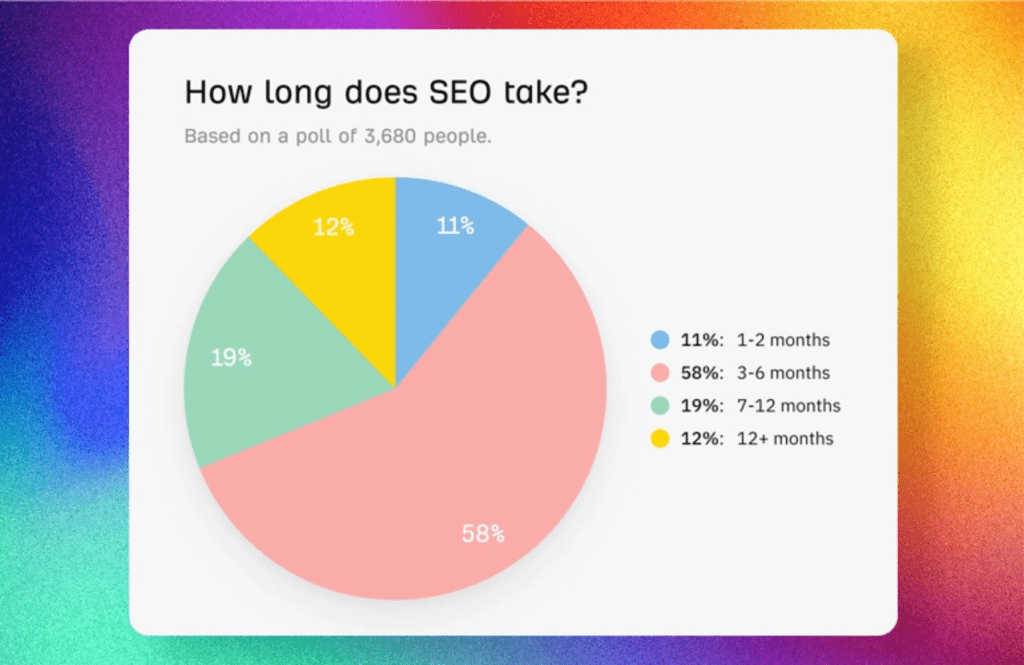
This means SEO isn’t ideal if you want to rank as soon as possible.
Of course, results can vary. Depending on the keywords you’re targeting, your industry, and the amount of competition, you may see results sooner than expected!
Results aren’t guaranteed
If an SEO agency promises they can get you on the first page of Google, that’s a massive red flag.
The issue with SEO is that there is no guarantee that your content will rank high. The search engines constantly update their algorithms (more on that later), there are external factors beyond your control, and your competitors will be working on their own SEO strategies.
We recommend focusing on quality content rather than where you end up in the rankings. Create trustworthy, evergreen pages written for people rather than the search engines, and you’ll reap the benefits.
The algorithms can change
The search engines regularly update their algorithms in line with what users want to see– these are the criteria they use to determine which web pages should rank highly. In 2023, there were nine major updates to the Google algorithm alone!
This means that content that once ranked well on Google can fall down the rankings. As a result, you always need to be aware of how your content is performing.
For example, there will be a significant update in 2024 when Google updates its Core Web Vitals to include a metric called ‘interaction to next paint’. This measures how long it takes for a page to respond to clicks, taps, and keyboard interactions.
If your website isn’t responsive enough, it could affect your SEO.
The advantages of using PPC
It leads to quick results
As soon as you set up your PPC campaign, your ad will appear. Unlike SEO, there’s no need to wait for the search engines to crawl your site, or to get backlinks.
This makes pay-per-click advertising fantastic for short-term campaigns. Let’s say you want to promote a line of products in time for Christmas. You don’t have to wait for your page to gain traction in the search engines – you can set up a search or social media ad to point straight to it.
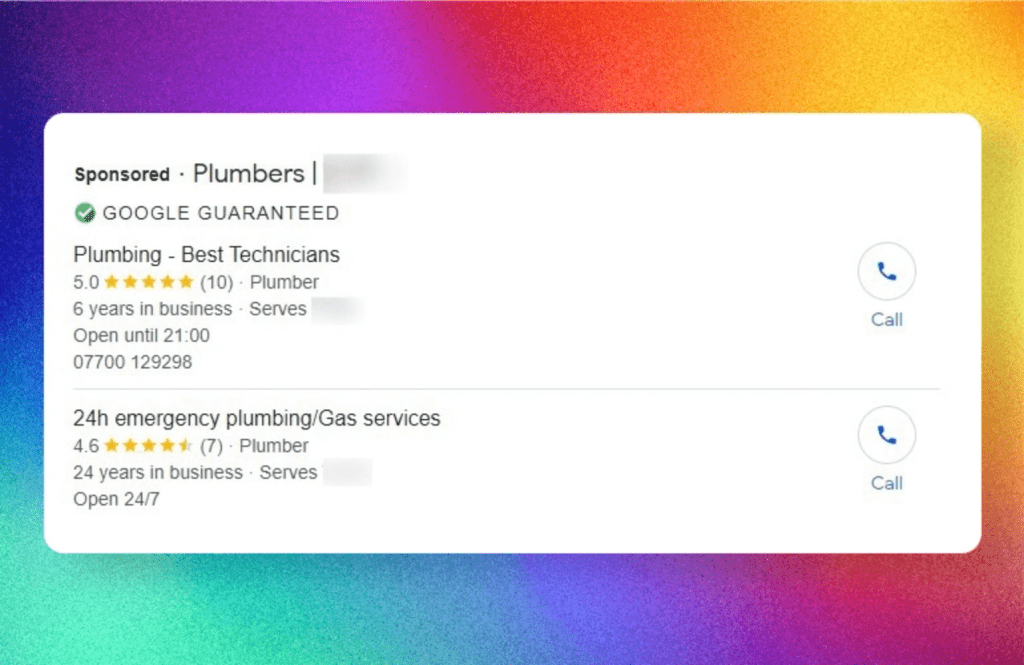
You don’t even need a website to run some PPC ads. For example, if you run a local business, you can create a search ad that allows customers to call you directly.
There are lots of different options
With SEO, there’s only one aim and one goal – to rank as high as possible in the search engine results.
However PPC gives you a lot more flexibility. There are a wide range of websites you can advertise on, and different placements on each of these websites.
For example, take Google. As well as advertising directly in the search engines, you can advertise on YouTube and in mobile apps. Plus, if you take advantage of the Google Display Network, you can also promote your business on over two million sites worldwide!

Another benefit of PPC is that you can easily target people no matter where they are in the sales funnel.
For example, display ads and social media ads are fantastic for raising brand awareness for those at the top of the sales funnel. Conversely, search ads are ideal for targeting people at the bottom of the sales funnel who are ready to buy.
You have more control over your content
With SEO, there’s no guarantee how your page links will look in the search engines. Take meta descriptions and page titles for example – while you can create them, the search engines may replace them with something else entirely.
When you use PPC, you have much more control over what your ad will look like, from the copy and the imagery to the call-to-action.
This means you can create a clear, concise, and consistent message that will appeal to your ideal customers.
As well as the message, you can also use targeting to precisely identify exactly who you want to see your ad. As a result, you can reach the right people and avoid wasting your money on irrelevant clicks.
The disadvantages of using PPC
It stops working as soon as you stop paying
PPC is ‘pay to play’ – your ad will appear wherever you need it as long as you have the money to spend. However, as soon as you go over budget, your ad will no longer show.
This means that unlike SEO, where you build up your search engine presence over time, PPC has no long-term effect on your rankings.
If budget is an issue, there are things you can do to reduce your ad spend and lower your cost-per-click, or CPC. For example, going after keywords with less competition, A/B testing your ads to see which are the most effective, and optimising your landing pages to drive conversions.
Some people don’t trust ads
Earlier we talked about the correlation between SEO and trust and how pages that rank on the first page of the search engine results are seen as more trustworthy.
With PPC, you can get the top spot for any keyword if you’re happy to pay the right amount. The issue with this is that people are aware that this happens and as a result, are willing to dismiss PPC ads.
According to Statista, only 38% of people trust search ads.
The good news is that there are steps you can take to make your paid ads, whether on Google, Bing, or social media, more trustworthy. Using reviews, testimonials, ratings, and user-generated content can encourage customers to put their faith in your advertising.



It takes time to master
It’s relatively easy to jump into PPC advertising and create your first ad. However, mastering the respective PPC ad platforms can take time and resources.
For example on Google Ads, getting to grips with attribution modelling, dynamic ads, and advanced bidding strategies can make your campaigns more effective. However, these concepts can be tricky to understand.
Training is available if you need it – Google Ads Skillshop and Meta Blueprint can explain everything you need to know. Alternatively, a digital marketing agency specialising in PPC can do the hard work for you.
Can you use SEO and PPC together?
You can!
While you can use SEO and PPC separately, these marketing channels complement each other well.
Your SEO strategy can inform your PPC strategy, and vice versa. For example, you can set up a broad match campaign in Google Ads to see which keywords potential customers use. You can then take these words and phrases and optimise your website for them.
You can also use SEO and PPC to ensure all your bases are covered in the search engines. By getting the first result in the organic search results and the top result in paid search, you’re increasing the chances of potential customers discovering your brand.
As you can see here, Country Hotel Breaks has both, meaning a lot of prime real estate on the first page of Google!
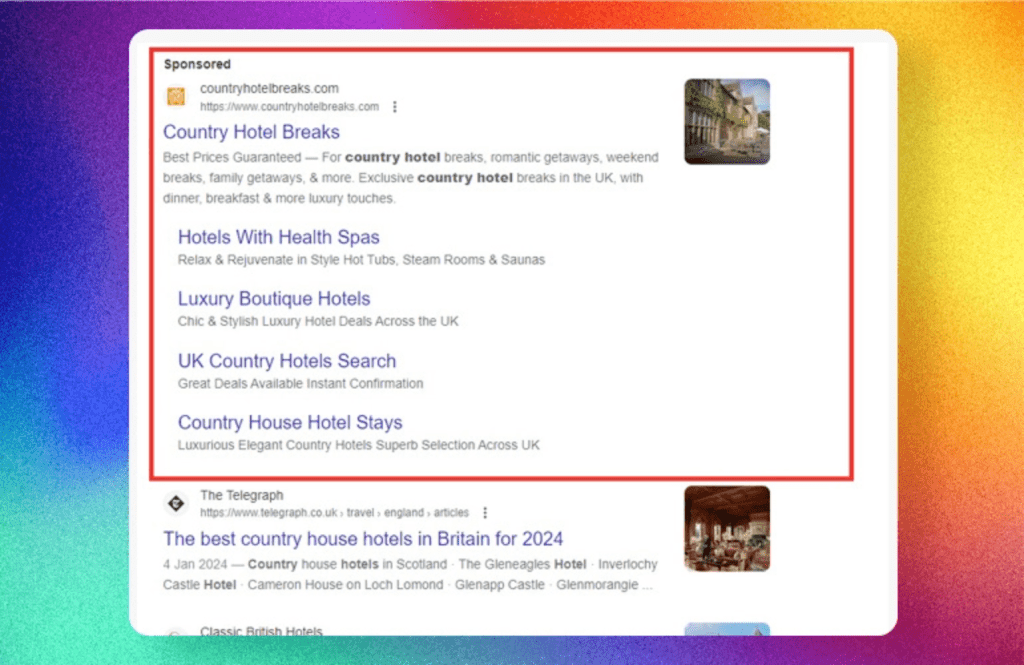

SEO or PPC: which one is right for you?
We’ve looked at both SEO and PPC and the pros and cons of using them. The big question is… which one reigns victorious?
The honest answer is that there is no definitive answer! Depending on your business needs, you might choose to use one or both in your marketing strategy.
Here are some questions to ask to determine which is right for your requirements.
- What is your goal?
- What is your budget?
- How soon do you need results?
- Who are you competing against
- What marketing channels are your competitors using?
Need help with your SEO or PPC?
When used correctly, SEO and PPC can raise brand awareness and drive traffic to your website. However, it’s important to remember that they are two vastly different marketing channels.
If you’re still not sure which one to use, think of them in the long term and short term. SEO is fantastic for signposting customers to your website, and when done right, the positive effects can last for years. You can get up and running with PPC straightaway, and place your business in front of the right people in a matter of minutes.
And, of course, you can use both to ensure you target customers wherever they are in the sales funnel.
Need to kickstart your SEO strategy or are looking to give PPC a try? We can help.
We’re experienced in search engine optimisation and PPC advertising and have helped clients across a range of industry sectors. Our team of specialists will audit your business, develop a strategy that aligns with your goals, and manage your marketing to deliver the right results.
Get in touch today, and let’s work together to get your business seen by the right people.



